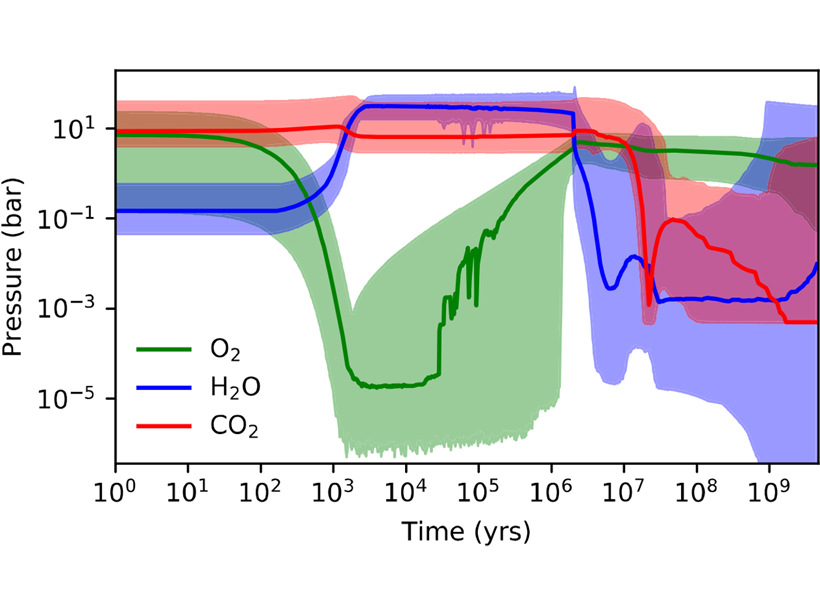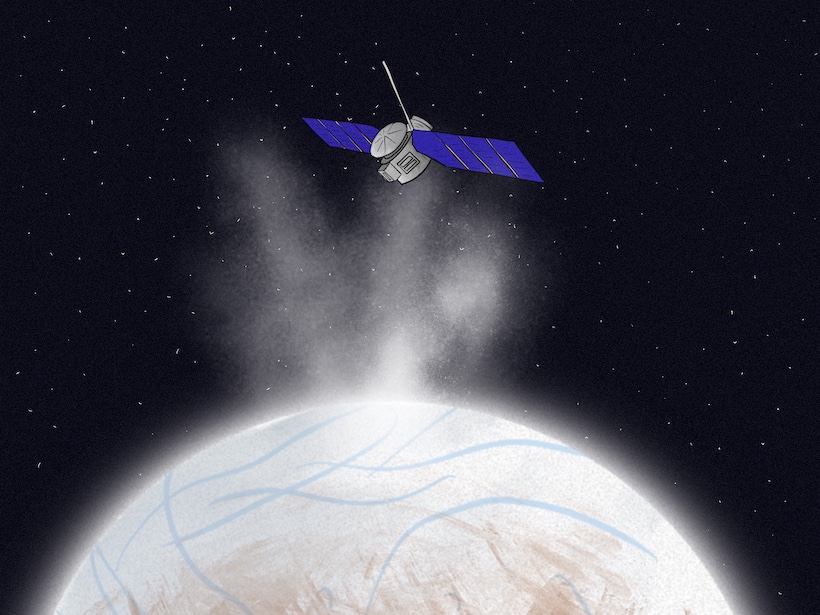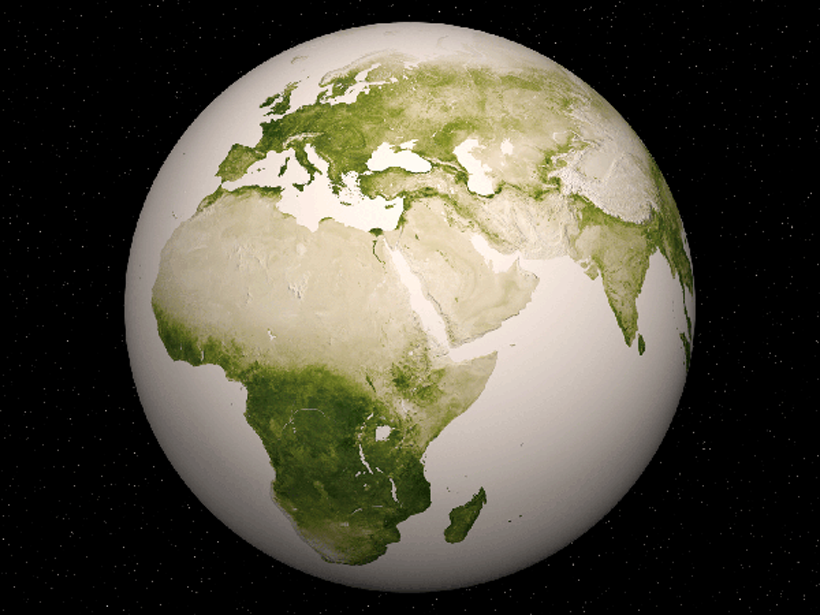While some Earth-like worlds can generate significant O2 only by biology, “waterworlds” and “desert worlds” can build up O2 even without life because of chemical changes from atmosphere loss to space.
life as we know it
Esta búsqueda por vida alienígena comienza con la destrucción de bacterias en la Tierra
Algún día, un catálogo de fragmentos moleculares podría ayudar a científicos a identificar vida extraterrestre en las lunas heladas de nuestro sistema solar.
Ancient, Acidic Lakes May Have Harbored Life
A new analysis of South African sediments hints that acidic lakes may have leached minerals necessary for biotic life.
Geologists Have a New Tool for Reconstructing the Ancient Climate
A new study of seafloor sediments finds that the temperature record in the early Paleozoic corresponds to significant shifts in the diversity of life on Earth.
Half of Earth’s Nitrogen May Be Homegrown
A new analysis of iron meteorites reveals a distinct isotopic signature that suggests nitrogen was present around early Earth.
This Search for Alien Life Starts with Destroying Bacteria on Earth
Someday, a catalog of molecular fragments might help scientists identify extraterrestrial life on our solar system’s icy moons.
Chance the Hacker: How Earth Stayed Habitable
New analysis indicates that planetary feedbacks alone don’t make habitability an inevitability.
Very Good Space Boys: Robotic Dogs May Dig Into Martian Caves
Four-legged, autonomous robots known as “Mars Dogs” will explore previously inaccessible caves to look for signs of life and potential locations for future human colonies.
The Cosmic Timeline of Heliophysics
Thom Moore began his career after the start of the space age. This is the story of how he converted his interests in evolution, philosophy, and psychology and writing into the study of heliophysics.
Habitability and the Evolution of Life Under Our Magnetic Shield
Earth’s global magnetic field likely dates back billions of years and is a barrier against cosmic radiation. What roles has it played in the planet’s biosphere?










